RENÉ SCHNEIDER
(PI)
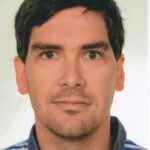
+49 331 977 2652
I am a physicist and received my PhD from TU Dresden and the MPI of Cell Biology and Genetics (Dresden) for research on the movement of motor proteins along microtubules. I developed optical methods to enable the nanometer-precise tracking of single motors in-vitro using gold nanoparticles. Linking in-vitro and in-vivo worlds fascinates me. Therefore, I joined Staffan Persson’s lab at the University of Melbourne, where I worked on the regulation, movement, and spatio-temporal organization of cellulose synthases in Arabidopsis thaliana cells. Currently, my research aims to understand how the water-conducting cells of the xylem generate highly ordered patterns of the plasma membrane, the cytoskeleton, and the cell wall, both in-vivo, in-vitro, and in-silico.
Annika Saß
(PhD)
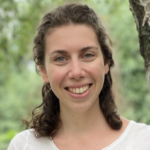
+49 331 977 2801
Originally from Rostock, Germany, I moved to Berlin for my bachelor studies in biology at Humboldt University. I continued with a master in molecular biology and biochemistry at the University of Potsdam. In parallel, I worked at the MPI for Molecular Plant Physiology (Potsdam) where I investigated the role of autophagy during deacclimation in Arabidopsis.
In my PhD, I aim to decipher cytoskeletal proteins that influence the orderly patterning of secondary walls in the Arabidopsis vasculature. Using novel genetic and computer analysis tools, I aim to understand the molecular mechanisms of pattern formation and determine what selective benefits and functions these patterns provide to plants.
SRISHTI JHA
(PHD)
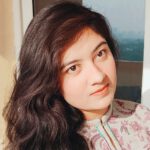
+49 331 977 2801
Knowing how things work was the reason I decided to become a researcher. I grew up in Greater Noida (India) where I was surrounded by a variety of plants. I received bachelor and master degrees in biotechnology at Gautam Buddha University. During my studies, I worked with green algae (Chlorella pyrenoidosa) and researched how volatile organic components produced by bacteria and cyanobacteria affect the growth and metabolism of the algae.
In my PhD, I am investigating how secondary wall patterning is established in the vasculature of Arabidopsis. I focus on the plasma membrane (considered to be the site of origin of pattern formation) and aim at identifying the proteins that influence pattern formation using novel genetic tools and image analysis.
Ulrike Lehmann
(PHD)
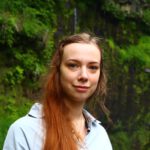
+49 331 977 2801
I completed my undergraduate studies at the University of Rostock and am currently enrolled in the Master course “Biochemistry and Molecular Biology” at the University of Potsdam. Here I developed an interest in plant genetics and molecular biology. As a research assistant , I worked on the topic “Divergence and locus-specific functions of the BOP1 promoter in Arabidopsis thaliana and Capsella rubella“.
In my new role as PhD student in the Schneider Lab at the Department of Plant Physiology, I would like to acquire skills in quantitative confocal microscopy and advanced image processing to gain expertise in the field of water-conducting tissue development in plants. My research questions, which I am pursuing within the CRC1644 collaborative research center, revolve around the genetic control of growth arrest in developing xylem cells and the genetic basis of phenotypic plasticity of xylem tissue in response to water limitation and drought stress.
Cheryl Quek Chai Hui
(PHD)
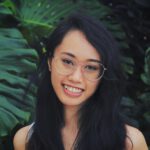
+49 331 977 2801
“Growing up in Singapore allowed me to explore nearby rainforests, where I became fascinated by how climate affects wildlife. This early exposure inspired me to pursue an honours degree in biology at Nanyang Technological University (NTU, Singapore). My honours thesis focused on motor-adaptor interactions in the Rubisco activase complex, investigating how this mechanism reactivates inhibited Rubisco in Acidithiobacillus ferroxidans using biochemistry and proteomics. Driven by a passion for protein research techniques, I continued at NTU as a full-time research assistant for a year.
As a PhD student, I aim to investigate the role of plant kinesin proteins in directing microtubule dynamics using novel gene editing technologies and in vitro microscopy assays. My research will also explore potential polymer cargo that kinesins transport and deposit to pattern the secondary cell wall, employing proximity-based interaction tagging. Understanding these mechanisms could provide insights into plant growth and development, with broader implications for agricultural biotechnology.”
Ankine Jobanian
(Research Assistant)

+49 331 977 2801
I hold a Bachelor’s degree in Life Science from the University of Potsdam and am currently pursuing a Master’s degree in Molecular Biology at the same institution. During my undergraduate thesis, I investigated protein-protein interactions within the centrosome of Dictyostelium discoideum using the Yeast Two-Hybrid method. This project ignited my passion for exploring novel genetic tools and techniques.
As a research assistant, I am now focusing on applying these cutting-edge genetic tools to study the proteins involved in the pattern formation of secondary cell walls in Arabidopsis thaliana.
Minal Girme
(Research Assistant)

+49 331 977 2801
I hold a Bachelor’s in Microbiology from India and am currently pursuing a Master’s in Biochemistry and Molecular Biology at the University of Potsdam. My research focuses on plant molecular biology, metabolism, and cellular adaptation, particularly how plants respond to environmental challenges.
During my recent internship, I investigated gene interactions in Arabidopsis thaliana related to root hair development, metabolic pathways, and defense responses, using gene expression analysis, metabolic profiling, and confocal microscopy.
At the Schneider Lab, I am exploring the genetic basis of protoxylem cell wall patterning and its link to drought stress, working under the supervision of PhD student Ulrike Lehmann. I aim to uncover key regulatory factors in xylem differentiation and adaptation, while refining my skills in quantitative and robot-assisted imaging, advanced microscopy, and molecular genetics.
Anh Minh Do
(Research Assistant)
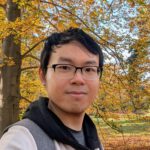
+49 331 977 2801
I earned my bachelor’s degree in Biotechnology from the University of Science, Vietnam National University. During my bachelor’s thesis in the genetics department, I was introduced to computational biology through the application of image analysis techniques for studying gastric adenocarcinoma cells transfected with Helicobacter pylori and genome sequence analysis. This experience motivated me to transition from wet-lab to dry-lab research, leading me to pursue a master’s degree in Bioinformatics at the University of Potsdam.
As a research assistant, I aim to deepen my expertise in image pre/post-processing, and the development of quantitative tools for microscopy. My objective is to bridge the gap between the in-house MATLAB image analysis scripts developed in the Schneider Lab and Fiji by transforming them into standalone Fiji plugins. By refining complex scripts into intuitive, user-friendly graphical interfaces, I seek to facilitate accessibility, enabling non-expert users to efficiently utilize these tools for their research.
Alumni
Daniel Jäckel
(MASTER STUDENT)
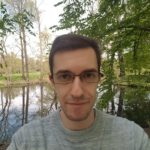
I attended the undergraduate biology program at the University of Potsdam and graduated in the field of animal cell biology. I worked with the amoeba Dictyostelium discoideum and became interested in how the phosphorylation of centrosomal proteins affects their localization in the centrosome during cell division.
In my role as research assistant, I would like to master the use of modern microscopy techniques and the design of image quantification scripts to investigate the influences of the cytoskeleton on secondary wall patterns in the water-conducting tissue of the model plant Arabidopsis thaliana.
Shaderia Tebo
(Research Assistant)

I am from Cameroon and completed a Biochemistry bachelor’s degree at the University of Buea, Cameroon. Currently pursuing a Master’s in Biochemistry and Molecular Biology at the University of Potsdam. My research assistant position is funded by the Potsdam Graduate School (POGS).
Growing up in a farming community sparked my fascination with plant diversity. My interest in plant workings deepened during my Master’s program at Potsdam. As a research assistant in the Schneider Lab, I aim to gain skills in quantitative microscopy and creating novel genetic tools to study pattern formation in Arabidopsis thaliana.